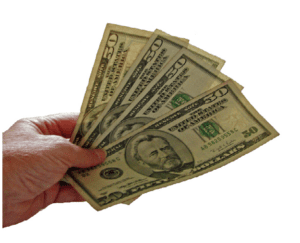Thoughts for a Green Consumer
 I attended my daughter’s high school baccalaureate tonight. Unfortunately my daughter couldn’t attend, because she graduated early and is working as an au pair in France. I found myself lamenting that my oldest child, now a young adult of eighteen, wasn’t able to hear the heartwarming and inspiring words of her school’s administrators, teachers and peers. While I can’t recall anything much about my own high school graduation ceremonies, I found myself impressed with the multiple messages at the ceremony.
I attended my daughter’s high school baccalaureate tonight. Unfortunately my daughter couldn’t attend, because she graduated early and is working as an au pair in France. I found myself lamenting that my oldest child, now a young adult of eighteen, wasn’t able to hear the heartwarming and inspiring words of her school’s administrators, teachers and peers. While I can’t recall anything much about my own high school graduation ceremonies, I found myself impressed with the multiple messages at the ceremony.
One of the things that stuck with me was a story her principal told about her father’s watch. He received it as a gift upon his high school graduation, and wore it regularly well into his adulthood. At some point in her young adulthood, she thought it seemed old and perhaps slightly unfashionable, and decided to gift him with a new watch on some special occasion. He politely explained that the watch he’d worn since he was eighteen was a source of pride and fond memories of his parents and high school friends, and that he enjoyed the reminiscence it brought him in his life. At that moment, she realized that the string of pearls that she’d received for her own graduation was equally precious, and learned a valuable lesson about treasuring the things we have.
We live in a culture that begs consumption. Our whole economy revolves around the continuous cycle of spending, much of which is unnecessary. Certainly technology has a way of bringing about early obsolescence of many of the things we buy, even though they may continue to serve the purpose for which they were originally purchased. If we examine our buying habits, I suspect we may find a lot of wasteful buying patterns. Much of this “conspicuous consumption” is a veiled attempt to impress our peers and give us a heightened sense of our own success.
I recently heard a startling statistic about how much food is wasted in American households, simply because we buy too much and end up throwing it out. Frankly, I’m not sure how this would be measured, but in my own house I know that we’ve bought food that we already had, and thrown food away because it went bad. The New York Times ran a story that said the average family of four wastes 122 pounds of food each month. This is indicative of the excess that we have in our lives, and a sad statement about how well we manage our abundance.
Another recent article in Salon.com talked about how American consumers often choose quantity over quality. The story’s headline referred to the American beer market, where low-cost, massed-produced products have long dominated the industry. Craft brewers, on the other hand, are making steady inroads, selling higher quality products at a higher cost, albeit at a much lower volume. The author posits the question: Will we choose to be a country that values high volume and low quality, or an economy where high quality and premium price demonstrate our discernment?
Hopefully we’re all finding ways to make the smarter long term investments, like expensive LED light bulbs that will last 20+ years and use 10-15% of the energy that a traditional light bulbs use. Or a high efficiency air conditioner that costs more up front, but provides tenfold energy savings. But perhaps more than anything, maybe we can resist buying the next techno-fad, souvenir, or cheap substitute for the real thing. Maybe we can consider our purchases like timeless watches.
I don’t know what the world would be like if we all stopped spending so much money. Perhaps it would send us into another Great Depression. Yet I have to wonder if we can’t find ways to share more, spend less, and live more simply. It certainly would contribute to a more sustainable world.
This was published in the Going Green section of the June 2012 issue of Spirit Seeker magazine.
